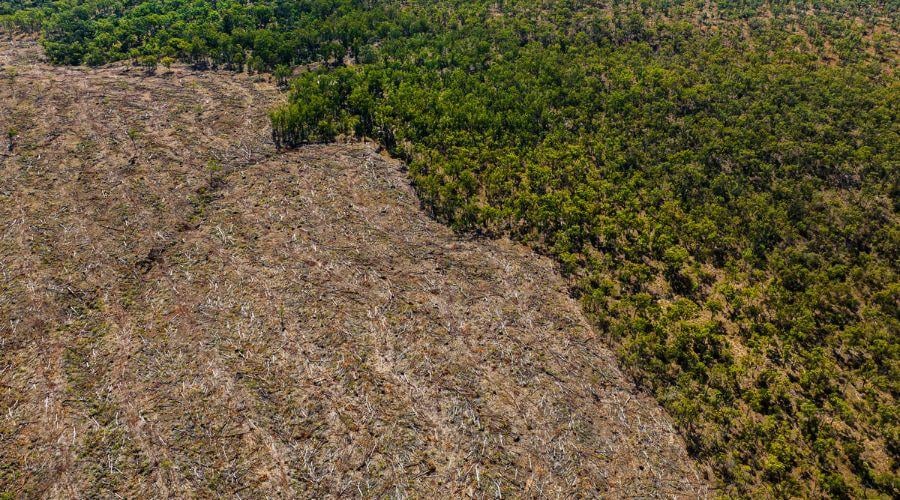News - 21 August 2023
New report reveals looming material financial risks for European investors financing Australian deforestation

A new report, launched at today’s Investor Group on Climate Change (IGCC) Summit, has shed light on the growing implications of deforestation and forest degradation risk for both Australian and European investors. The report, Following the money: Financial services’ links to deforestation and forest degradation in Australia, is the first of its kind and takes a clear-eyed look at biodiversity risk.
Commissioned by the Wilderness Society and prepared by EY, the report examines the European financial regulation regarding deforestation and biodiversity issues that will impact Australian and European financiers, as well as identifying where deforestation and forest degradation is happening in Australia, which sectors are contributing to it, and who is financing deforestation risk sectors in Australia.
The report finds that deforestation and forest degradation are significant contributors to biodiversity and nature loss in Australia, primarily driven by the agriculture, forestry, and land development sectors. According to the report, biodiversity and nature loss will become a material financial risk for companies and their financiers if not effectively managed.
Australia's unique ecology and poor environmental track record make it particularly vulnerable to deforestation and forest degradation risks. The extent of deforestation and degradation in Australia is not well understood globally and is not typically considered by financiers in their current ESG screening processes. Traditionally, global finance or corporate initiatives have focused on tropical deforestation in regions like the Amazon, neglecting other deforestation and forest degradation hotspots like Australia. However, the report finds that this is rapidly changing, with new global initiatives and regulatory frameworks in Europe and a number of other countries now addressing deforestation as a whole.
The report emphasises the need for financial institutions to build onto existing work on climate risk assessment by prioritising key concerns related to biodiversity risk. Europe is at the forefront of this convergence, and the report shows that financial institutions with links to deforestation and degradation risk sectors must be prepared for the effects of this significant shift by better understanding biodiversity and carbon impacts, mapping current risk exposure, and engaging in advocacy with governments and high-risk clients in deforestation and forest degradation risk sectors.
Adele Chasson, Corporate Campaigner for the Wilderness Society, said, “This report clearly shows that financial ties between Australia and Europe are large enough for European investors to be concerned about Australian deforestation, and certainly large enough for companies in Australia to be concerned by Europe’s rising environmental standards. It’s a matter of when, and not if, that Australian deforestation risk becomes a financial risk.
"We are already seeing the signs: take the recently adopted EU Deforestation Regulation that will require companies to demonstrate that they are not sourcing commodities from locations recently subjected to deforestation. But as this EY report shows, new market access regulations are just one of the many ways that Europe is working to protect forests through a multitude of converging approaches including corporate disclosures, climate and biodiversity due diligence and human rights. We believe that this report provides a roadmap for investors that want to stay ahead of the curve, and rightly accept that avoiding environmental degradation will soon become a requirement to do business globally.”
Alexandra Banks, EY Oceania Partner, Climate Change and Sustainability Services, said, “This report seeks to provide financial actors with an understanding of deforestation and forest degradation in Australian and clear guidance on the necessary actions to mitigate risk exposure.
"Halting and reversing deforestation and forest degradation will take significant action from a range of actors, including governments, scientists, civil society, corporates, industry bodies and financial institutions. This report is relevant to companies and financial institutions looking to drive meaningful change on deforestation or inter-related issues such as climate change, decarbonisation, human rights including Indigenous rights and nature and biodiversity."